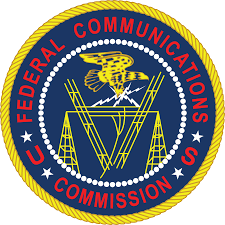
FCC
WASHINGTON — The Federal Communications Commission has proposed rules to ensure networks that serve as entry points for foreign-originated phone calls do their part to prevent this traffic from including illegal robocalls. Eliminating illegal robocalls that originate abroad is one of the most vexing challenges the Commission faces because of the difficulty in reaching foreign-based robocallers and the foreign voice service providers that originate their traffic.
To address this problem, the FCC is looking to impose new, stringent requirements on domestic gateway providers to stop robocalls. The Notice of Proposed Rulemaking adopted today proposes requiring these companies to apply STIR/SHAKEN caller ID authentication to, and perform robocall mitigation on, all foreign-originated calls with U.S. numbers. Implementation of caller ID authentication using the STIR/SHAKEN framework reduces the effectiveness of illegal spoofing, helps law enforcement identify bad actors, and improves voice service providers’ blocking of robocalls using illegally spoofed caller ID information before those calls reach their subscribers.
The Notice also makes several proposals to ensure that gateway providers are engaged in the fight against illegal robocalls. For example, it proposes requiring gateway providers to respond quickly to traceback requests, which are used to help block illegal robocalls and inform FCC enforcement investigations. Additionally, it proposes requiring both the gateway provider and the network accepting questionable traffic from the gateway provider to actively block these calls. It also proposes requiring that gateway providers ensure foreign calls using U.S. phone numbers are legally authorized to do so. And it proposes to require gateway providers to submit a certification to the Robocall Mitigation Database describing and committing to robocall mitigation practices.
The FCC has made combating illegal robocalls and spoofing a priority. Just this year, the FCC has required and confirmed implementation of STIR/SHAKEN standards on IP phone networks, issued the largest fine in FCC history against a telemarketer for spoof violations and proposed the largest robocall violation fine ever, successfully pushed certain gateway providers to cease and desist their facilitation of major robocall campaigns found on their networks, and improved coordination between agencies, nations, and even across FCC staff teams taking on different parts of this complex problem. That said, unwanted call complaints remain the top consumer complaint to the FCC and the Commission is committed to an ongoing and all-hands-on-deck effort to fight scam calls.



